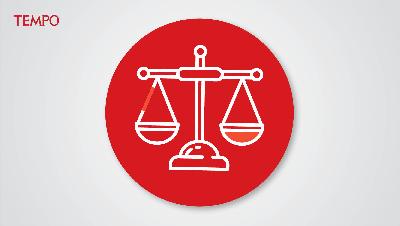It Is Time to Decriminalize Drug Addicts
Monday, September 25, 2023
Prosecutions for drug users lead to many police officers becoming corrupt. This offense needs to be decriminalized, and turned into a health issue.
arsip tempo : 174466533626.

THE revelations about Fredy Pratama’s network only provide further evidence that many members of the police have become part of the narcotics syndicates. Fredy is suspected to have colluded with Comr. Andi Gustami, Chief of the Lampung Police Narcotics Unit, who became a courier. Police have arrested Fredy’s men with 10 tons of narcotics evidence. But the drugs dealer, also known as Casanova, is still at large.
This is not a new practice. In May, former Chief of West Sumatra Police, Insp. Gen. Teddy Minahasa, was jailed for life after being found guilty of his involvement in a drug network. He ordered his subordinates to remove evidence in the form of crystal methamphetamine, or sabu-sabu, and replace it with alum. The drugs were then sold to dealers.
The wide-ranging powers of the police make it possible for officers to decide how the laws are applied. When handling narcotics cases, it is an open secret that officers work with major drug dealers to ensure they are freed. As well as this, officers often extort money from addicts before sending them for rehabilitation. If they are unable to pay up, these addicts are sent to jail.
A number of nations have begun to use a health approach and decriminalize these offences, rather than using law enforcement in order to eradicate drug addiction. This is a principle that sees the use of narcotics as a personal need, not a crime. Addicts are encouraged to undergo rehabilitation based on an assessment by health experts. Of course, major producers and drug dealers such as Fredy Pratama are still charged with criminal offences.
The decriminalization approach can help overcome the problem of overcrowding in Indonesian jails, where the number of convicts now exceeds the capacity. In 2022, according to the Justice and Human Rights Ministry, half of the 275,000 convicts had been convicted of drugs offences. This is because the police tend to send drug users to jail, rather than offering them rehabilitation.
The funds used to cover the accommodation of drug users in jail could then be transferred to public health programs. These could cover aspects such as increasing awareness of the dangers of drugs in different communities. The police could spend more time concentrating on breaking up drug syndicates rather than wasting time chasing small time users.
We could learn from Portugal. Since 2001, the government of that nation has treated ownership and consumption of small amounts of drugs for personal use as a health problem, rather than a criminal matter. Drug addicts are sent to a panel comprising doctors, attorneys and social workers. These committees decide what punishment is imposed, from fines, loss of driving license to bands on visiting discos. Drug users are then given free health care and rehabilitation. Meanwhile, the Portuguese police continue to focus on arresting the drug dealers.
There are still addicts in Portugal. The police have recently said that the decriminalization policy is responsible for the increase in overdoses and criminal actions triggered by drug abuse. But the decriminalization policy in that nation has effectively increased the number of users seeking health care and rehabilitation, as well as reducing the death rate resulting from overdoses to the lowest in the European Union. It now stands at six per one million people.
It is time that the policy of prosecuting drug users in this country is reexamined. Law enforcement only benefits dealers and police officers. With the funds and authority that they have, the police can decide how to implement the law. As a result, dealers remain free to act, while users that should have the right to medical treatment to free them from addiction, are jailed. This way of treating drug users has to stop.











